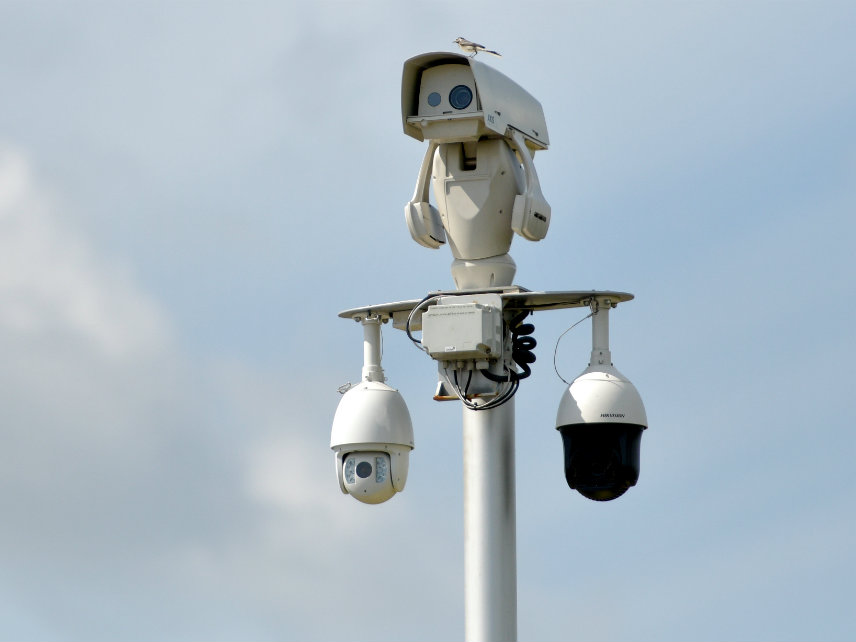Trump's Immigration Crackdown Means ICE Will Track Your License Plate Even if You're Not an Immigrant
Think immigration crackdowns don't affect you? You're wrong.

Immigration and Customs Enforcement (ICE) now has access to a national database of license plates, allowing it to track millions of cars on a daily basis regardless of the owners' immigration status.
A no-bid contract awarded in December by the Department of Homeland Security will allow ICE "access to a commercially available License Plate Reader (LPR) database." Though the contract recipient is not identified in public documents, The Verge (which first uncovered the contract's existence) reports that ICE will use a database built and maintained by Vigilant Solutions, a California-based company that partners with law enforcement agencies across the country to collect scans of law-abiding citizens' plates.
Each snapshot included in the database includes the license plate number, the attached vehicle's make and model, the state of registration, the GPS coordinates, and a timestamp, according to a "privacy impact assessment" released by DHS. License plate scanners are often attached to police cars, but some jurisdictions have them at fixed locations, including toll booths, bridges, and even ordinary road signs.
"Some LPR systems also capture within the image the environment surrounding a vehicle, which may include drivers and passengers," the assessment notes. "Information can be collected from all vehicles that pass the camera."
Despite the obvious privacy issues, the DHS assessment concludes that it's fine for ICE to have access to the database, in the name of "public safety and national security."
Automated license plate readers have been a point of concern for the American Civil Liberties Union (ACLU) since 2013, when the organization released a report based on public records requests submitted to 600 police departments. The ACLU said the scanners were "becoming a tool for mass routine location tracking and surveillance."
While license plate scanners can be used for legitimate law enforcement functions as part of criminal investigations, the ACLU says those instances account for "a tiny fraction" of the millions of license plate records tracking drivers, most of whom have no idea that they're in the database.
The DHS contract states that "ICE is neither seeking to build nor contribute to a national public or private LPR database." But the immigration cops are happy to put the existing database to use.
According to The Verge, ICE will be able to query the database for five years' worth of data, enough to track nearly every movement that a target might have made during that time. Agents will also get immediate email alerts when a particular license plate is spotted again.
"Knowing the previous location(s) of a vehicle can help determine the whereabouts of subjects of criminal investigations or priority aliens to facilitate their interdiction and removal," the privacy assessment explains. "In some cases, when other leads have gone cold, the availability of commercial LPR data may be the only viable way to find a subject."
The Verge also reports that DHS experimented with giving ICE access to license plate scanner databases in 2012, but the Obama administration ultimately backed away from the idea because of privacy concerns. The Trump administration, which has made it a priority to apprehend and deport illegal immigrants—even ones who pose no apparent risk to public safety or national security—seems to have no such qualms.
To be clear, the national LPR database maintained by Vigilant Solutions does not discriminate between cars owned by illegal immigrants and those owned by legal residents of the United States. For that matter, it does not discriminate between vehicles owned by people suspected of committing any crime and everyone else. It's a blanket surveillance tool that tracks an estimated 100 million people every month as they commute, run errands, and visit friends. It even covers cars that are just parked on their owners' driveways.
This database shouldn't exist at all, whether or not ICE uses it. In the meantime, millions of innocent Americans can have their vehicles tracked by the immigration police—whether they are immigrants or not—for no reason at all.


Show Comments (73)